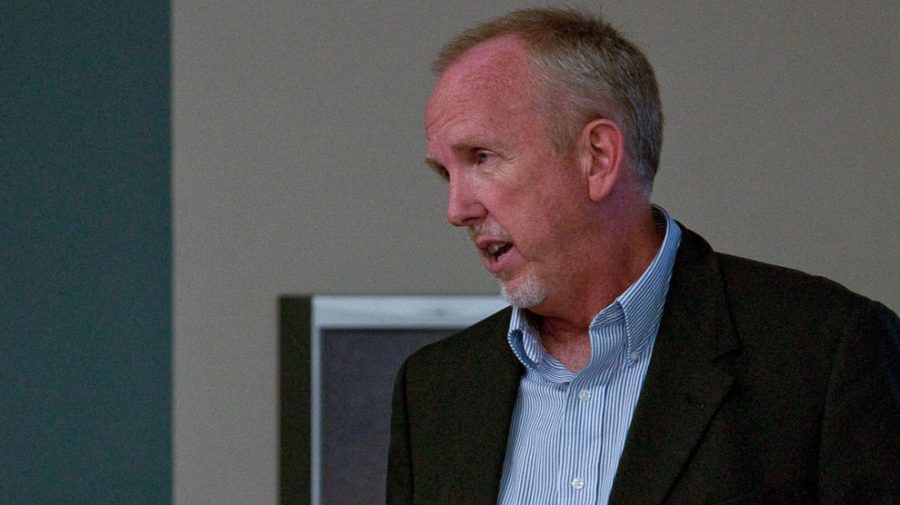BP spokesman Ray Melick spoke to the Public Relations Student Society of America on Tuesday about his experience in crisis public relations during the oil spill response.
“I wanted to make sure that we were the first people that the news media talked to,” he said. “We knew if we missed that deadline then we weren’t going to be a part of the story.”
He said the news media was contacting him 24 hours a day and seven days a week, and BP tried to be very accessible to the media during that time.
“We feel that BP’s reputation will be restored as the coast is restored,” he said.
Meg Watson, vice president for PRSSA said she was very grateful that Melick agreed to speak to the students about his experiences in public relations.
“I got his contact information from our state president of PRSSA, and he was gracious enough to come to talk to the students.
“A lot of our members are interested in crisis public relations,” she said.
Gigi Eyre, a freshman majoring in journalism said she was very surprised to hear some of the things in the speech.
“He talked about some of the things that the media took out of context in some instances,” she said. “It really made me think about the power that the media has to shape the public’s perceptions.
“I am from Baldwin County that is about 30 minutes away from the Gulf where the oil spill took place and the affects were not as significant to my family, but probably affected people closer to the shore,” Eyre said.
She said her family became more cautious with the seafood that they ate, but she feels some of the things regarding the oil spill were blown out of proportion.
“This made me think more about what I automatically believe when I hear it on television, and that it may not be the full truth,” she said.
Melick spoke to students about what it was like to be a public relations officer during this time, and how he was brought in after the disaster had occurred.
“We wanted to give the news media accessibility and bring some of the news local and not just focus solely on national news outlets such as CNN,” he said.
The beaches are now supposedly clean, but tar marts are expected to wash up during storms.
Melick also addressed the role social networking websites played in this crisis.
“Social media is a huge impact on what we are doing,” he said. “We are really into Facebook chat to stay in tune with what is being said.”
He also addressed the fake Twitter account, BPGlobalPR, that was being run by a man that was not affiliated with the company during the time of the oil spill.
“We did see the account and really there was nothing we could do about it,” he said. “We did not address it directly, but we did try to counter it and get people to understand certain issues.”
Amanda Coppock, president of PRSSA said, “I was really excited to hear the speech and the efforts of BP as a whole to bring in a spokesperson to be more local.
“Our organization tries to bring in speakers that are very interesting to talk about a variety of things so there are so many different facets of public relations,” she said.









